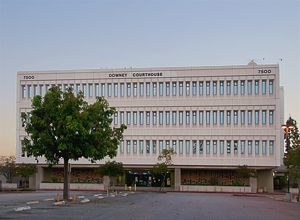Recently, in Los Angeles County at the Downey Courthouse we successfully litigated a post-conviction motion on behalf of our client.
Our client had pled to a Penal Code section 273.5(a) domestic violence offense in 2001. According to our client’s immigration attorney this domestic violence offense made him vulnerable to lose his lawful permanent resident status and made him ineligible to naturalize as a United States citizen. Our client hired our office to seek post-conviction relief from this conviction.
According to the court records for our client’s matter the court file had been destroyed and the transcript of the proceedings was unable to be prepared. However, according the docket showed that our client was advised that his plea “may have” immigration consequences. We argued in our motion that the immigration consequences of a domestic violence offense to a non-citizen are explicit and clear and mandates permanent deportation and denial of naturalization. Thus, our client should have been advised of the certainty of these consequences.
After the filing of our motion, subsequent appellate opinions such as People v. Camacho (2019) 32 Cal. App. 5th 998 were issued and ordered published and supported the argument we made in our original moving papers. Thus, we supplemented our original motion with further arguments and authorities supporting our view that our client should have been advised of the certainty of the consequences.
At the final hearing on the motion, the court granted our motion and the prosecution agreed to allow our client to re-plea to an immigration neutral offense, Penal Code section 243(e)(1). According to our client’s immigration attorney, this re-negotiated plea will help our client avoid losing his lawful permanent resident status and will help him naturalize as a United States citizen.
DISCLAIMER:
The information in this blog post (“post”) is provided for general informational purposes only, and may not reflect the current law in your jurisdiction. No information contained in this post should be construed as legal advice from Escovar Law, APC or the individual author, nor is it intended to be a substitute for legal counsel on any subject matter. No reader of this post should act or refrain from acting on the basis of any information included in, or accessible through, this Post without seeking the appropriate legal or other professional advice on the particular facts and circumstances at issue from a lawyer licensed in the recipient’s state, country or other appropriate licensing jurisdiction. The information on this website is a communication and is for informational purposes only. The facts of every case are unique and nothing on this page or on this website should be taken as legal advice for any individual case or situation. The information on this website is not intended to create an attorney-client relationship and viewing of this information does not create an attorney-client relationship. The result portrayed in this advertisement was dependent on the facts of this case. Results will differ if based on different facts.

